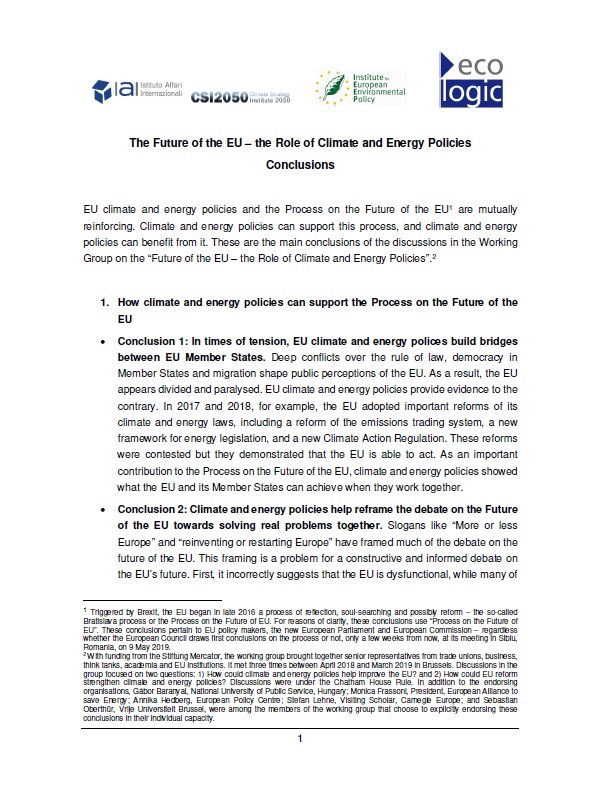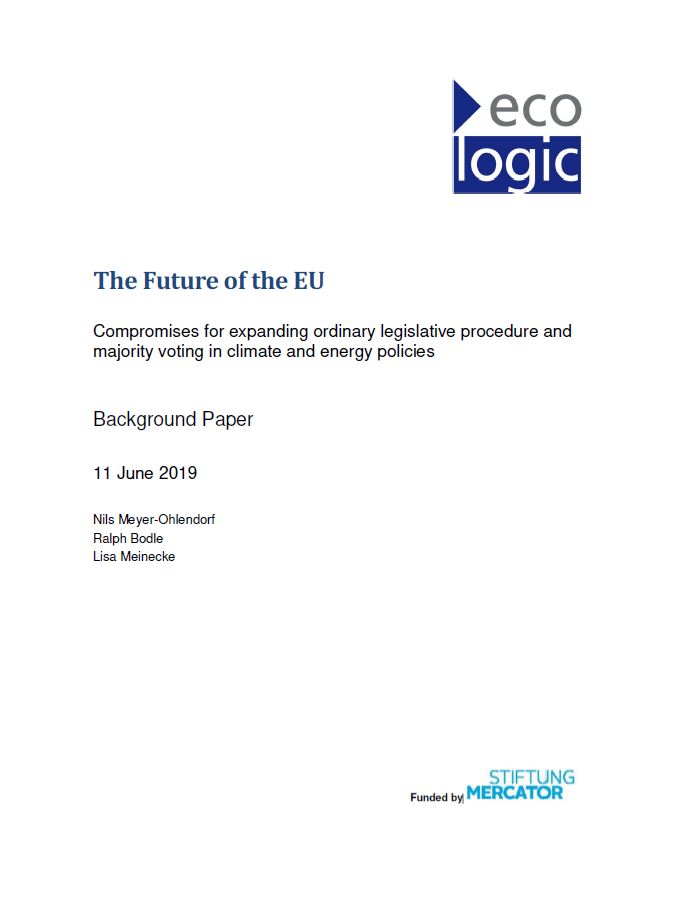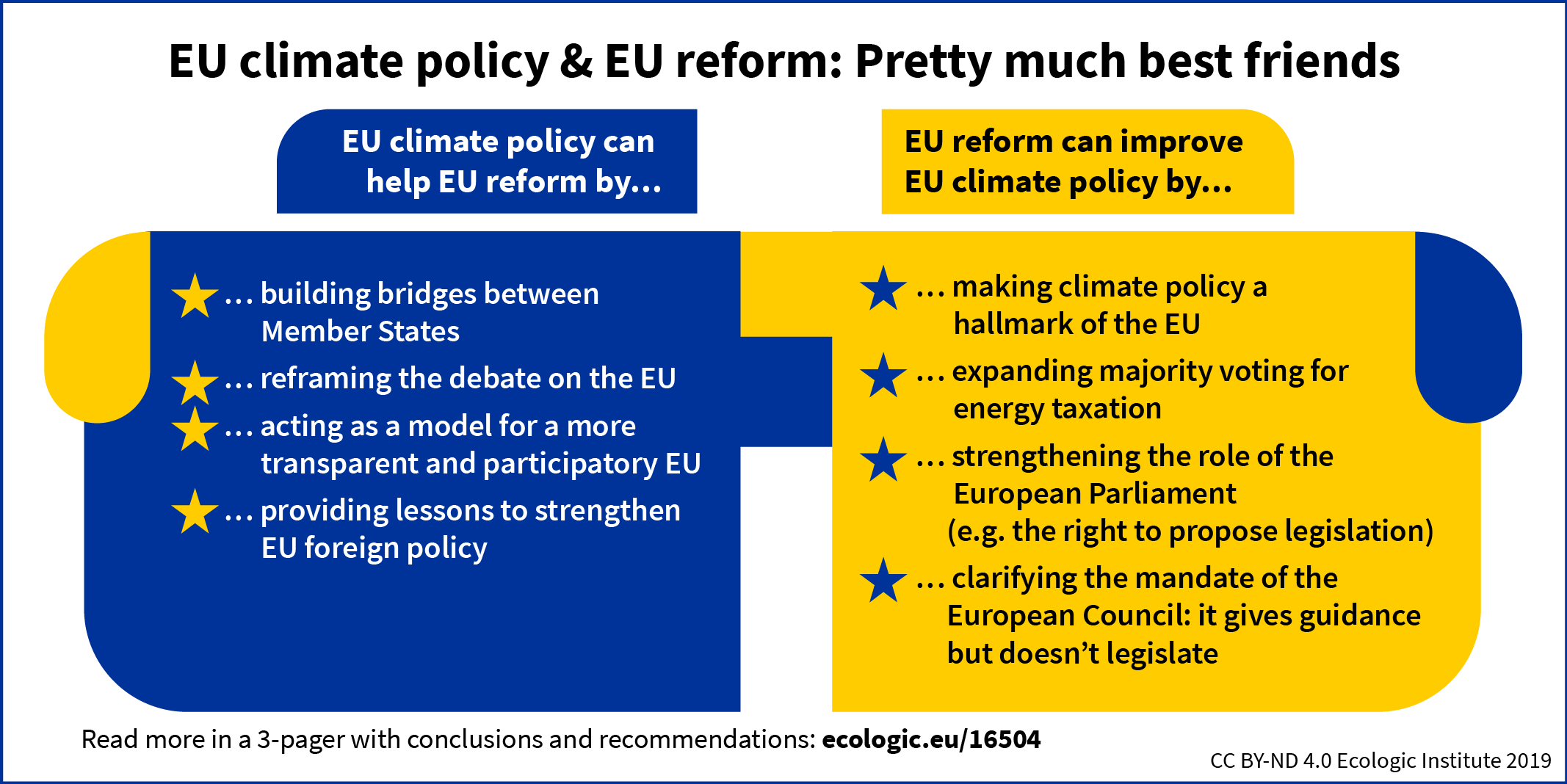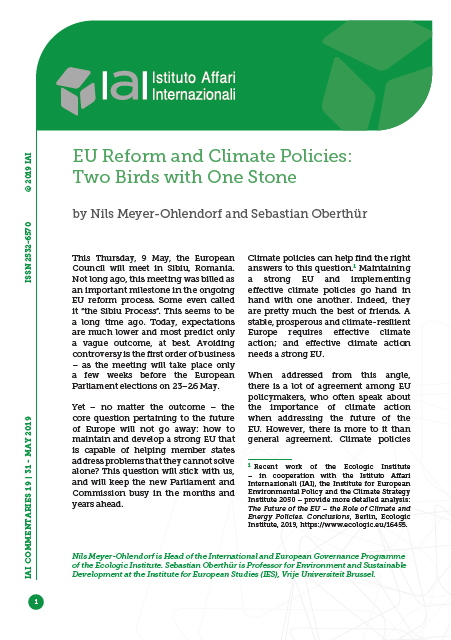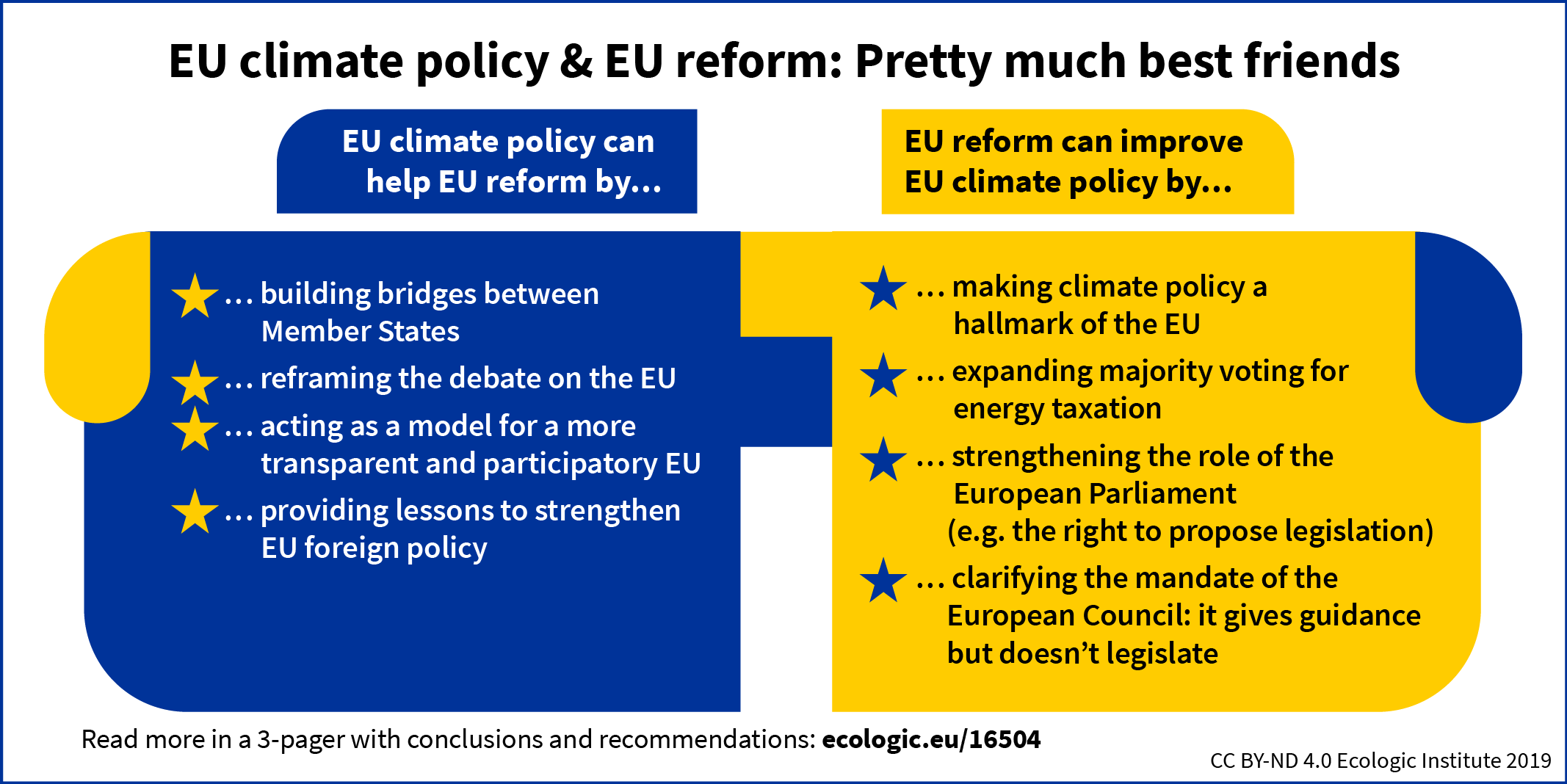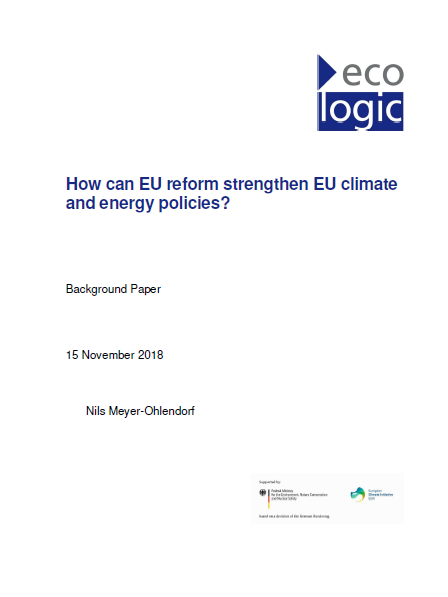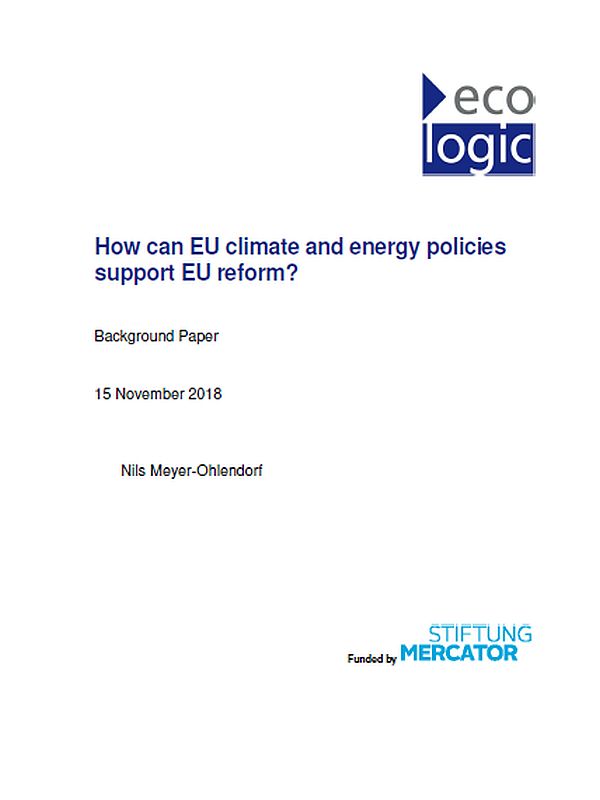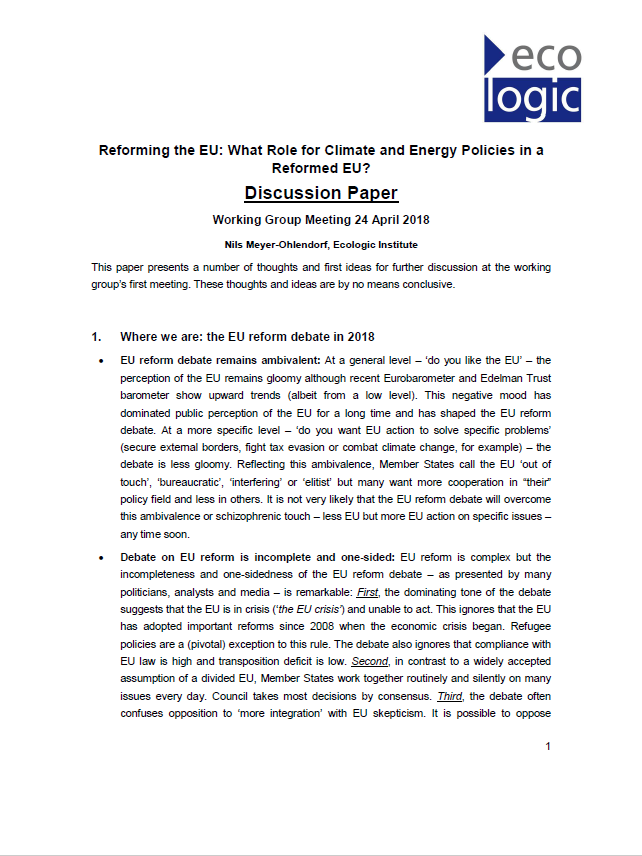The Future of the EU – the Role of Climate and Energy Policies – Recommendations
Conclusions
- Publication
- Citation
Ecologic Institute, the Istituto Affari Internazionali, the Institute of European Environment Policies, the Climate Strategy Institute 2050 2019: The Future of the EU – the Role of Climate and Energy Policies. Conclusions.
In response to Brexit, the EU embarked on a process of reflection and possibly reform, the so-called Bratislava Process or the Process on the Future of Europe. At its meeting on 9 May 2019, the European Council was expected to draw first conclusions. As a contribution to this process, the Ecologic Institute, the Istituto Affari Internazionali, the Institute of European Environment Policies and the Climate Strategy Institute 2050 offered a number of recommendations to EU policy makers on how EU climate policies can support this process, and on how climate policies can benefit from it. The recommendations are available for download.
Contact
- Language
-
English
- Authorship
- Funding
-
Stiftung Mercator, Germany - Year
- Dimension
- 4 pp.
- Project
- Project ID
- Table of contents
-
Click to show full table of contents
1. How climate and energy policies can support the Process on the Future of the EU
Conclusion 1: In times of tension, EU climate and energy polices build bridges between EU Member States.
Conclusion 2: Climate and energy policies help reframe the debate on the Future of the EU towards solving real problems together.
Conclusion 3: Climate and energy policies are a role model for a more transparent and participatory EU.
Conclusion 4: Climate and energy policies provide lessons that can help strengthen EU foreign policy.
Conclusion 5: EU climate and energy policies show that the EU is flexible and able to address the different needs and circumstances of Member States.2. How climate and energy policies can benefit from the Process on the Future of the EU
Conclusion 6: The Process on the Future of the EU could help make climate and energy policies a hallmark of the EU.
Conclusion 7: The Process on the Future of the EU can help make EU funding, state aid, and the financial sector more beneficial for climate and energy policies.
Conclusion 8: Using the Treaty’s passerelle clause, the Process on the Future of the EU could help expand the ordinary legislative process in EU climate policies.
Conclusion 9: Strengthening the European Parliament is good for both democracy in the EU and effective climate policies.
Conclusion 10: The European Council has at times engaged in the details of climate and energy legislation; the Process on the Future of the EU can help clarify the mandate of the European Council. - Keywords
-
reform process, EU, European UnionEuropeanalysis
Meyer-Ohlendorf, Nils (2018). How can EU climate and energy policies support EU reform?, Ecologic Institute, Berlin.
Meyer-Ohlendorf, Nils (2018). How can EU reform strengthen EU climate and energy policies?, Ecologic Institute, Berlin.
Workshop:Reforming the EU: What Role for Climate and Energy Policies? – Tallinn
- Date
-
- Location
- Tallinn, Estonia
Workshop:Reforming the EU: What Role for Climate and Energy Policies? – Sofia
- Date
-
- Location
- Sofia, Bulgaria
Workshop:Reforming the EU: What Role for Climate and Energy Policies? – Bucharest
- Date
-
- Location
- Bucharest, Romania
Meyer-Ohlendorf, Nils 2018: Reforming the EU: What Role for Climate and Energy Policies in a Reformed EU? Discussion Paper for the Working Group Meeting on 24 April 2018. Ecologic Institute: Berlin.
Reforming the EU: Climate Policies as the New Trade Mark of the EU
- Duration
-
-
- Funding
